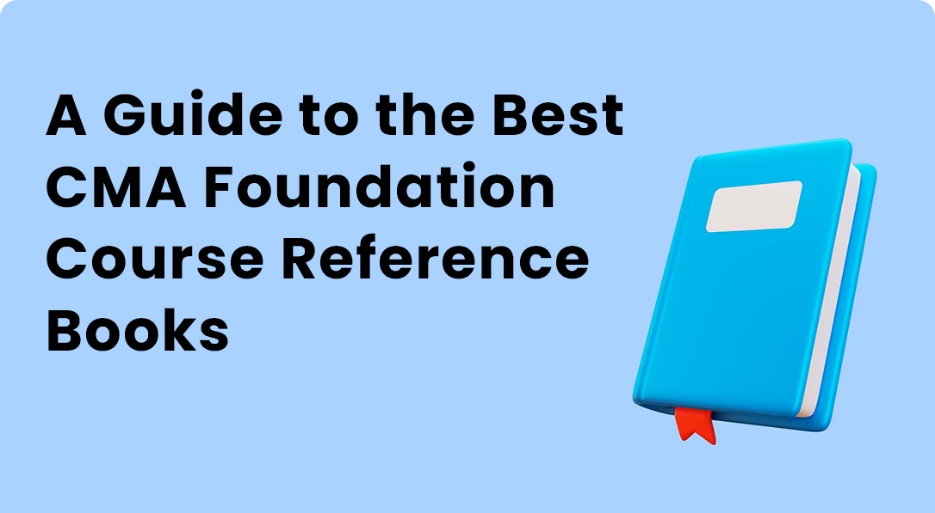The Institute of Cost & Works Accountants (ICWA), now known as the Institute of Cost & Management Accountants (CMA), has been a pioneering force in shaping the discipline of Cost & Management Accountancy in India. The shift in nomenclature, from ICWA to CMA, reflects the comprehensive nature of the courses offered by the institute. This transition was not just a semantic change but a strategic move to align the curriculum with global standards and emphasize the broader scope of management accounting.
Understanding the Core Tenets of CMA
At the heart of the CMA Foundation Course lies a profound exploration of strategic management decisions tied to an organization's economic activities. The primary objective is to equip aspiring professionals with the knowledge and skills required to strike a balance between expenditures and available resources. This demands a nuanced understanding of both cost and financial management, making CMA graduates adept at navigating the complex financial landscape of organizations.
Differentiating ICWA and CMA
While ICWA traditionally offered immediate job assurance by aligning with market trends, the rebranded CMA brings forth a more prestigious and comprehensive profession. CMAs play a pivotal role in collecting, collating, analyzing, and assimilating financial information from all facets of an organization. This transformation emphasizes the need for professionals not just to be job-ready but to be capable of contributing strategically to organizational success.
Revamping of CMA Foundation Syllabus
In 2016, the Institute of Cost Accountants of India (ICMAI) undertook a significant overhaul of the CMA Foundation syllabus. This revamp was part of a broader initiative that also saw changes in the ICMAI CMA Inter and ICMAI CMA Final syllabi. A more recent notification announced the transformation of CMA Inter and CMA Final into CMA Executive and CMA Professional, showcasing the institute's commitment to keeping pace with evolving industry demands.
ICMAI CMA Foundation Syllabus (June 2019 Exam)
The current ICMAI CMA Foundation syllabus, applicable from the June 2019 exam onwards, encompasses four papers, each assigned specific weightage percentages. These papers include Fundamentals of Economics and Management (FEM), Fundamentals of Accounting (FOA), Fundamentals of Laws and Ethics (FLE), and Fundamentals of Business Mathematics and Statistics (FBMS). The allocation of weights underscores the importance of a well-rounded knowledge base for aspiring CMAs.
Exploring Reference Books for Foundation Level
The CMA course unfolds across three levels: Foundation, Inter, and Final. Exam preparation at each level necessitates high-quality content, often found in reputable cma foundation course books authored by experts. Noteworthy authors and publications contribute significantly to the development of these reference materials, ensuring that aspirants have access to comprehensive and reliable study resources.
Fundamentals of Economics & Management:
For this paper, Shuchita Prakashan Ltd. offers a solved scanner authored by Prof. Arun Kumar, Dr. Himanshu Srivastava, and CA Mohit Bahal. Priced between Rs.300 to Rs.400, this book is designed to provide a thorough understanding of both the economic and managerial aspects. It serves as a valuable resource for grasping the fundamentals crucial for making strategic management decisions.
Fundamentals of Accounting:
Noteworthy cma foundation course books for this paper include "Financial Accounting" by Jasmine Kaur and "Cost Accounting And Financial Management" by G Sekar & B Saravana Prasath, published by Barron’s Educational Series. The latter, priced at $250 and above, is recognized for its in-depth coverage of financial management, a vital aspect of cost and management accounting.
Fundamentals of Laws & Ethics:
To navigate the complexities of laws and ethics, books like "Fundamentals of Laws & Ethics" by CA Jaishree Soni and "A Handbook On Law, Ethics And Communication" by Best Word Publications prove invaluable. Published by Best Word’s Publications, the former, authored by CA Jaishree Soni, CA. Kamal Garg & CA Munish Bhandari is priced at Rs.920. These references ensure a comprehensive understanding of legal and ethical considerations in the business realm.
Fundamentals of Business Mathematics & Statistics:
For mastering business mathematics and statistics, books such as "Business Mathematics & Statistics" by Soma Garg and Arun Julka, and "Business Mathematics (Fully Solved Previous Years Examination Papers)" by N G Das & Dr. J K Das provide extensive coverage. Priced at Rs.255, these books equip students with the mathematical and statistical tools essential for effective decision-making in business scenarios.
Conclusion
In the realm of cma foundation course books, a thorough understanding of the transformation from ICWA to CMA, the evolving syllabus, and the selection of reliable reference books is crucial for aspirants looking to excel in their CMA journey. The emphasis on strategic management decisions, coupled with a blend of cost and financial management knowledge, positions CMAs as indispensable contributors to organizational success. With the right study materials and a commitment to staying abreast of industry changes, aspiring CMAs can navigate the complexities of the profession and emerge as proficient professionals in the field of Cost and Management Accountancy.
You Can Read Also: Unlocking Success with CMA Foundation Video Lectures
FAQs
What prompted the change from ICWA to CMA, and how does it impact aspiring professionals?
The shift from ICWA to CMA was driven by the recognition of the interchangeable nature of the terms Cost & Works Accountants and Cost & Management Accounting. This change signifies a broader perspective on the profession's scope, emphasizing not only cost-centric but also management-oriented aspects. Aspiring professionals should understand that this transition doesn't alter the core principles but reflects the evolving dynamics of the field, offering them a more comprehensive skill set in cost and financial management.
What are the distinctive features of ICWA and CMA courses, and how do they impact career paths?
ICWA assures immediate job opportunities aligned with market trends, making it a secure, job-oriented course. On the other hand, CMA offers a distinguished professional path with high social status, involving meticulous financial information analysis. The choice between the two depends on career preferences. ICWA suits those seeking quick employment, while CMA appeals to those aspiring for a profession emphasizing strategic financial decision-making across organizational domains.
How has the ICMAI syllabus changed, and what are the implications for aspiring CMA candidates?
The ICMAI implemented changes in the CMA Foundation syllabus in 2016, transforming CMA Inter and CMA Final into CMA Executive and CMA Professional. Aspiring candidates need to adapt to these changes, understanding the implications for exam structures and content. Staying updated with the revised syllabus ensures that candidates align their study materials with the latest requirements, enhancing their preparation for the CMA exams.


